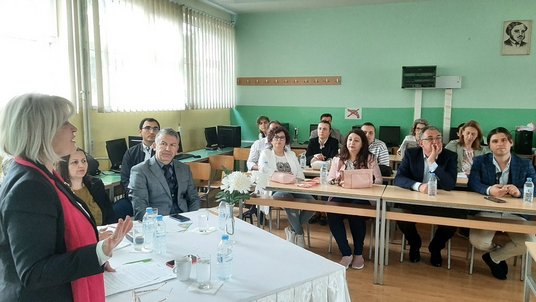
Republic of North Macedonia

- Capital: Skopje
- Area: 25,713 km²
- Population: 2.05 million (2022)
- Official Languages: Macedonian, partially Albanian and Turkish
Skopje
In close cooperation with the North Macedonian Ministry of Education and the Centre for Vocational Education and Training the OeAD implements education projects in the area of vocational education and training. The projects are coordinated by the OeAD's regional office in Tirana.
Key focus:
- Vocational education and training
- Quality development: focus on cooperation between schools and businesses
Beispiel:
Objective: To increase the quality of in-company learning in Albania, Kosovo and North Macedonia.
Duration: 2022-2024
Direct target group in North Macedonia: Approx. 80 business liaison officers, headmasters/headmistresses and teachers from approx. 80 schools of vocational education, approx.30 companies.
Indirect target group: Approx. 11,500 pupils
Background:
By introducing dual training and compulsory in-company internships in school-based vocational education and training North Macedonia has taken steps to strengthen learning in companies and thus to increase the labour market relevance of vocational education and training.
“Business liaison officers” at schools of vocational education are the interfaces with businesses, they are responsible for communication and cooperation with companies, especially with regard to the organisation of different formats of workplace learning.
The aim of the project is to strengthen vocational education and training providers as competent partners of the private sector. The focus is on increasing the quality of in-company learning by introducing effective processes in the organisation of different formats of in-company learning and corresponding quality assurance measures.
Results:
- Thematic training of 80 business liaison officers.
- Awareness-raising activities for companies.
- Establishment of national “learning communities” for continuous professional development of the “business liaison officers” to support them in fulfilling their role as an interface with the private sector.
- Introduction of quality assurance and quality development measures that support the effectiveness and efficiency of the business liaison officer function, especially in the organisation of work-based learning.


